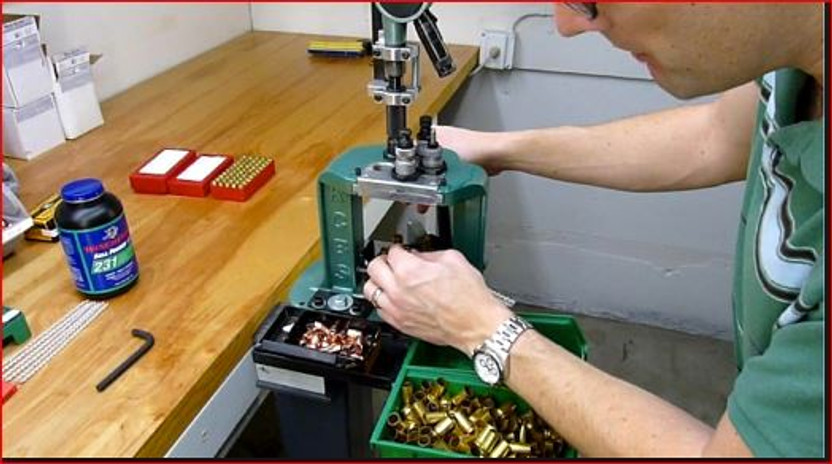Common Reloading Objections
Posted by nyllah123 on 19th Sep 2025
If you’re using anything beyond a .22, it’s likely that you’re either currently engaged in reloading your ammunition or considering the option. And why not? This becomes particularly pertinent given the ammo shortages in recent years and the looming possibility of stricter gun legislation. There’s no idyllic scenario where individuals on both sides of the gun debate unite and harmoniously sing around a campfire. This reality alone is sufficient to prompt any shooter to explore the realm of reloading.
However, the drawback lies in the fact that a significant portion of research is now conducted online. While this approach has its merits, it also empowers anyone with a keyboard to broadcast their opinions to the world, irrespective of their quality. Consequently, a plethora of misinformation and unwarranted panic has been disseminated about the reloading practice. This is precisely why we aim to examine some of the prevailing objections that both gun owners and non-gun owners encounter regarding reloading.
It’s Too Dangerous
The fact remains that anything can pose a risk if appropriate safety measures are not taken and due respect is not given to the task at hand. Frequently heard remarks about reloading involve warnings like “You’ll blow up your house!” or “Your gun will explode if you use reloaded ammo.” Causing an explosion in your house would require significantly more than a few pounds of gunpowder and a few hundred primers. In reality, I am confident that the only plausible way to intentionally blow up your house using reloading supplies would be a deliberate act.
Still, though, there is some danger to it, but not any more than what’s involved in shooting a gun. Anybody considering reloading should do as much research has possible beforehand and become familiar with every safety protocol revolving around reloading.However, there is a certain level of risk associated with reloading, comparable to the risks involved in firing a gun. Individuals contemplating reloading should conduct thorough research beforehand and acquaint themselves with all safety protocols related to the reloading process.
Insurance companies won’t allow it
This is certainly a legitimate concern that should be addressed on an individual basis. Each insurance company varies in its requirements. Some may insist that both the reloading activity and the storage of materials occur in a separate building unattached to the main house. Others might have specific regulations governing the quantity of supplies, particularly gunpowder, that can be stored while maintaining coverage. However, it’s uncommon for an insurance company to completely prohibit reloading on a property they insure.
It’s too expensive to get started
It’s widely known that starting to reload your own ammunition requires an initial investment. However, the extent of this investment depends entirely on how deeply you want to engage with the process from the outset. For a comprehensive beginner’s guide, refer to this article. Now, let’s face the reality. The cost of owning and shooting a gun is high. If you’re a dedicated shooter, it won’t be long before you start realizing returns on your initial investment.
It’s complicated
Indeed, it can be complex. The process involves a significant amount of math and calculations, particularly when adjusting your load. However, with the current technological advancements and the wealth of historical data accessible, it’s not as intricate as it used to be. There are presses available that can execute each step simultaneously without much intervention from the reloader, except for turning a crank. For beginners, it’s advisable to begin with smaller, simpler setups and gradually progress to more intricate ones.
Like any new undertaking, reloading requires meticulous attention to detail in both research and purchases. Nevertheless, it has the potential to become one of the most gratifying hobbies you’ve ever pursued.
Visit Capital Cartridge Today!

